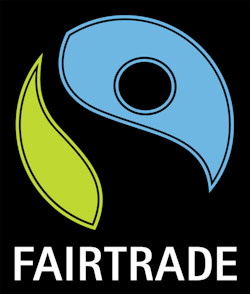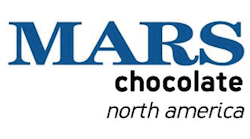Mars Chocolate Partners With Fairtrade International
Mars Chocolate and Fairtrade International announced a new agreement to introduce the first Fairtrade labeled Mars product and to work together to enable farmers to have sustainable livelihoods and substantially increased productivity. At the heart of the agreement is a shared ambition to make commodity certification that supports sustainable livelihoods for farmers the norm in the cocoa industry. Over the long-term, Mars will explore how best to scale up its purchases of Fairtrade cocoa and will support Fairtrade's continued efforts to develop measures that would allow more confectionery companies to increase their commitments to purchase more Fairtrade cocoa with the aim of impacting the lives of more cocoa farmers than ever before.
As part of the initial phase of the agreement, the first Mars product to carry the Fairtrade Mark will be Maltesers®, to appear in stores in 2012 in the U.K. and Ireland, a move that will contribute more than $1 million annually in Fairtrade Premium funds for cocoa farmers to invest in their farms, business organizations and communities.
"This agreement is a big step towards fulfilling our shared mission to empower farmers to build vibrant, sustainable livelihoods, and we're very excited to work with Fairtrade on ways to enable commodity certification to scale across the entire industry," said Barry Parkin, Mars global chocolate vice president in a prepared statement. "This commitment is our recognition of Fairtrade's history of dedication to smallholder farmers and their efforts to enable farmer productivity and income improvements."
In addition, Fairtrade and Mars will work to take advantage of their common interests and expertise to explore how to improve the productivity, quality, labor and community development benefits they can bring to farmers. Cocoa farmers stand to benefit immensely from the partners' combined experience – Mars' expertise in technical support to improve yield and Fairtrade's expertise in building farmer organizations.
"We're excited about this agreement's potential to transform the lives of thousands of small-scale cocoa farmers," says Rob Cameron, CEO of Fairtrade International. "Through Fairtrade certification, we've seen how farmers' organizations can use the additional investment from Fairtrade cocoa sales to tackle the problems they face – from projects to improve their farming methods and the quality of the cocoa they produce, to schooling for their children and health facilities in their villages. But the needs are still so great. That's why working with Mars is so important - together we have the potential to have real measurable impact on the ground."
Current annual world production of cocoa is around 3.5 million metric tons, and by 2020 the chocolate confectionery industry will need at least 4.5 million metric tons. To satisfy demand, cocoa farmers need industry support to invest in overcoming the challenges of ageing cocoa trees, low productivity and lack of confidence in cocoa farming among the young. Yet as of 2009, certified cocoa represented just over 1 percent of total purchases.
Mars was the first major confectionery company to commit to purchasing only certified cocoa. In the future, demand for certified cocoa must be met by an efficient, effective and reliable system of farmer training, auditing and supply chain management. Further, a much greater proportion will need to be certified by 2020 to allow the market to bear additional large-scale certified purchasing commitments, and, more importantly, to have a positive impact on many more of the 5 million to 6 million farmers who cultivate cocoa.
Both Mars and Fairtrade believe that empowering farmers to drive change is the most effective way to achieve true sustainability. Fairtrade is working with tens of thousands of cocoa farmers in West Africa and, with the additional income from the Fairtrade Premium, Fairtrade farmers' groups have hired agronomists, invested in farm-level productivity and built warehousing and processing facilities. They are funding community development by providing clean water, free health insurance and scholarships for children.
Mars is guided by its principle of creating "mutual benefits" for partners throughout the supply chain, including farmers. Apart from committing to sourcing only certified cocoa by 2020, Mars has also released an annotated map of the cocoa genome into the public domain and will invest heavily in Côte d'Ivoire and other major cocoa producing countries over the next decade to provide hundreds of thousands farmers with the tools, material and training necessary to dramatically increase yield and, by extension, farmer income.
Michael Nkonu, director of Fairtrade Africa, which represents farmers and producers across Africa, said: "We've been working hard to support and strengthen our networks of Fairtrade certified cocoa farmers in West Africa. Many farmers in the Ivory Coast region are still struggling to re-establish their lives and build up their farms following the recent troubles. This agreement couldn't be more timely, and will help enable a better future for farmers."






